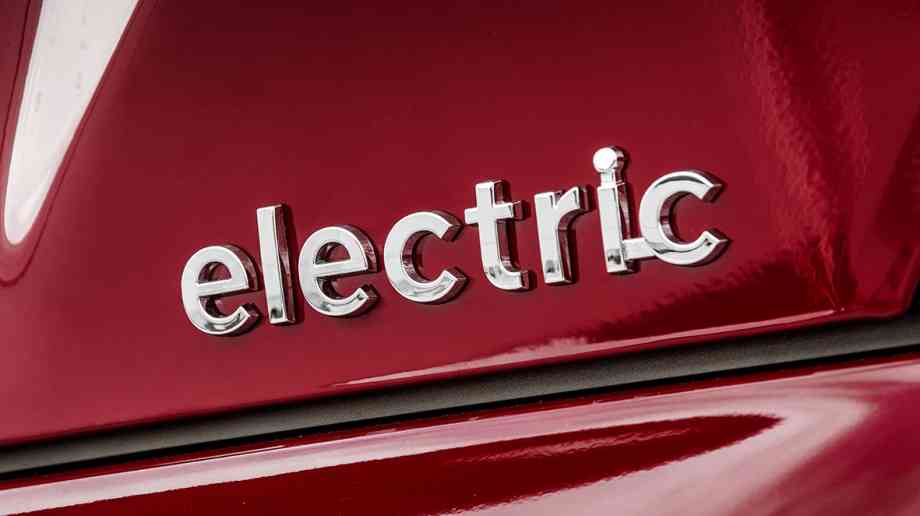Sue Robb of 4Children talks to Julie Laughton and Alison Britton from the Department for Education about the role of childminders in delivering the 30 hours free entitlement.
Time to ‘plug the gap’ between EV ambition and delivery

The Society of Motor Manufacturers and Traders (SMMT) has called for all stakeholders to ‘plug the gap’ between electrical vehicle ambition and delivery, to make Britain a world leader in zero emission mobility.
New SMMT analysis has revealed that some £10.8 billion has been dedicated to UK electric vehicle production and gigafactories since 2011, with billions more invested globally to bring new technology to market. Saying that the overall UK automotive commitment to electrification will be even higher, the group has praised the UK’s first ‘electric decade’.
In Britain’s first ‘electric decade’, kicked off by a £420 million investment in Sunderland for the UK’s first mass-produced battery electric car, more than 10 vehicle manufacturers have invested in communities across the country to create jobs and to design, engineer and build the cleanest, greenest vehicles for domestic and export markets. Alongside cars, the UK also produces electric vans, buses and trucks, as established manufacturers and new entrants have invested in production.
The EV market has followed suit. Ten years ago, six models of electric car were available, accounting for just one in 1,000 new car registrations. There are now more than 140 models on the market, with electric vehicles comprising more than one in six new cars and one in 28 vans registered.
However, just one in 80 cars on the road, however, runs on electricity, with the UK aiming for one in three by 2030 if net zero ambitions are to be met.
With uptake far higher among businesses and fleets, which benefit from generous fiscal incentives, the SMMT says that higher growth depends as much on charge point provision as affordability. The ratio of public standard chargers to electric vehicles has rapidly deteriorated, with just one charger for every 32 plug-ins across the UK compared with one for every 16 just 12 months ago and significant regional variations.
SMMT has advocated a nationally co-ordinated, locally delivered infrastructure plan, with binding targets for chargepoints that match those imposed on vehicle manufacturers. Overseen by a regulator, such a plan would put consumers at the heart of the transition, accelerating chargepoint provision and addressing charging anxiety among drivers and businesses. It would also help the one in three households that do not have off-street parking and would therefore be reliant on public charging, to make the switch.
Mike Hawes, SMMT chief executive, said: “The UK automotive industry has set out its intent – to meet the challenge of net zero – and has backed that ambition with cash, investing massively during Britain’s first electric decade. As we enter the second, the stakes are higher, with some of the world’s toughest regulation coming, regulation that will seek to determine the pace of change in a market constantly buffeted by headwinds. But mandates on manufacturers alone will not drive the market.
“Delivering net zero needs a competitive industry and a competitive market. We need a holistic strategy with binding targets on chargepoint provision, attractive fiscal and purchase incentives, and a reliable, accessible and affordable user experience. We need a universal right to charge electric vehicles, for all drivers, wherever they live, wherever they travel and whatever their needs.”
Company Focus
Located in Bromley, Japanese Knotweed Eradication Ltd has been providing solutions in the treatment and removal of Japanese Knotweed (Fallopia Japonica) for over a decade. During this time we have mastered a repertoire of methods, from herbicidal treatments to landscaping solutions, tailored to address the unique challenges our clients face with this pervasive weed.
Event Diary
UKREiiF has quickly become a must-attend in the industry calendar for Government departments and local authorities.
The multi-award-winning UK Construction Week (UKCW), is the UK’s biggest trade event for the built environment that connects the whole supply chain to be the catalyst for growth and positive change in the industry.
Supplier Profiles
Geo Energy
At GeoEnergy Design, we're on a mission to disrupt the traditional way heating and cooling ha
Latest Features
Professor Harith Alani, director of the Knowledge Management Institute at the Open University explains how AI can be used for good and bad.
Alex Lawrence, head of health & social care, techUK sets out techUK’s Five Point Plan for CareTech.

















